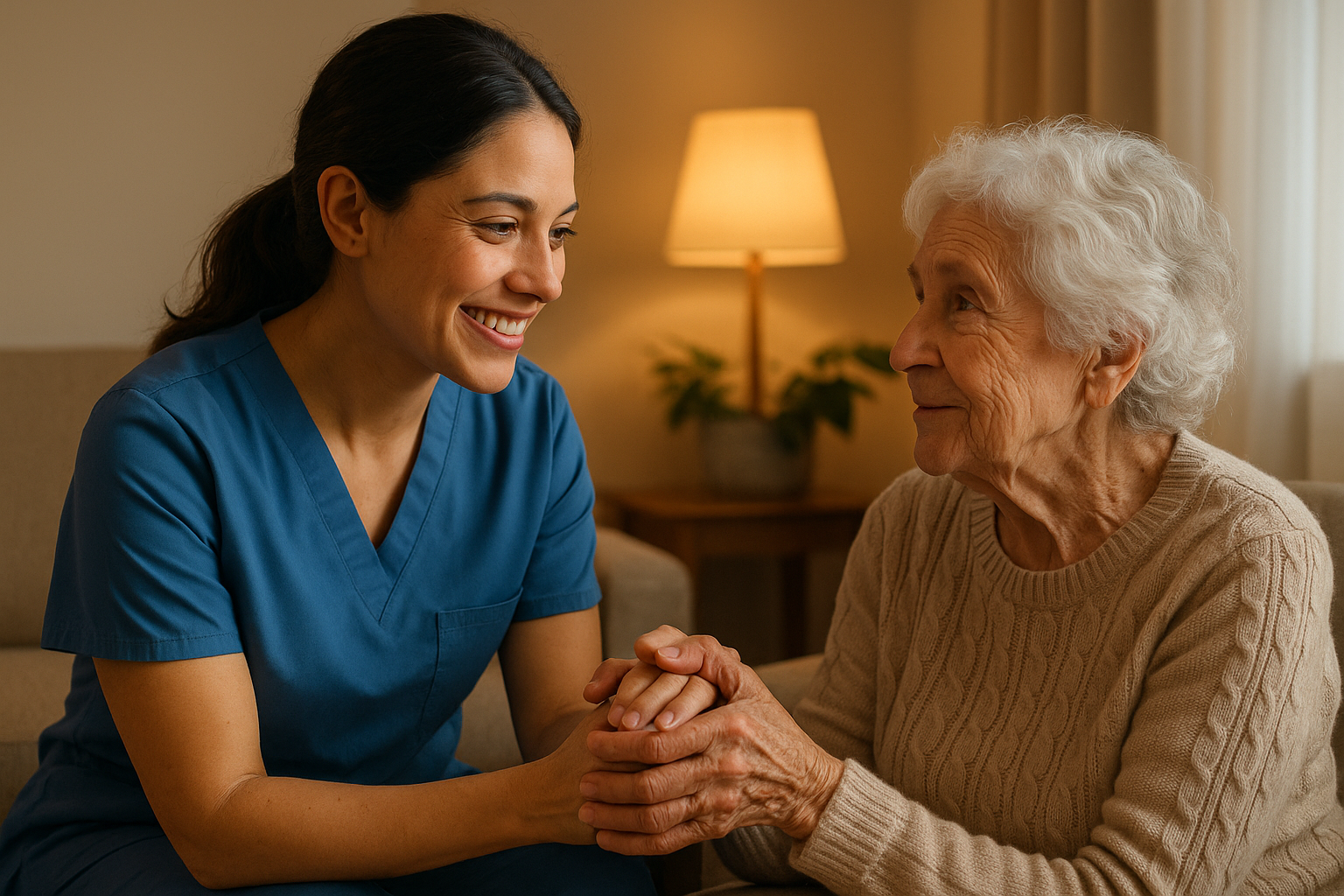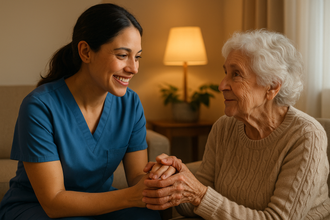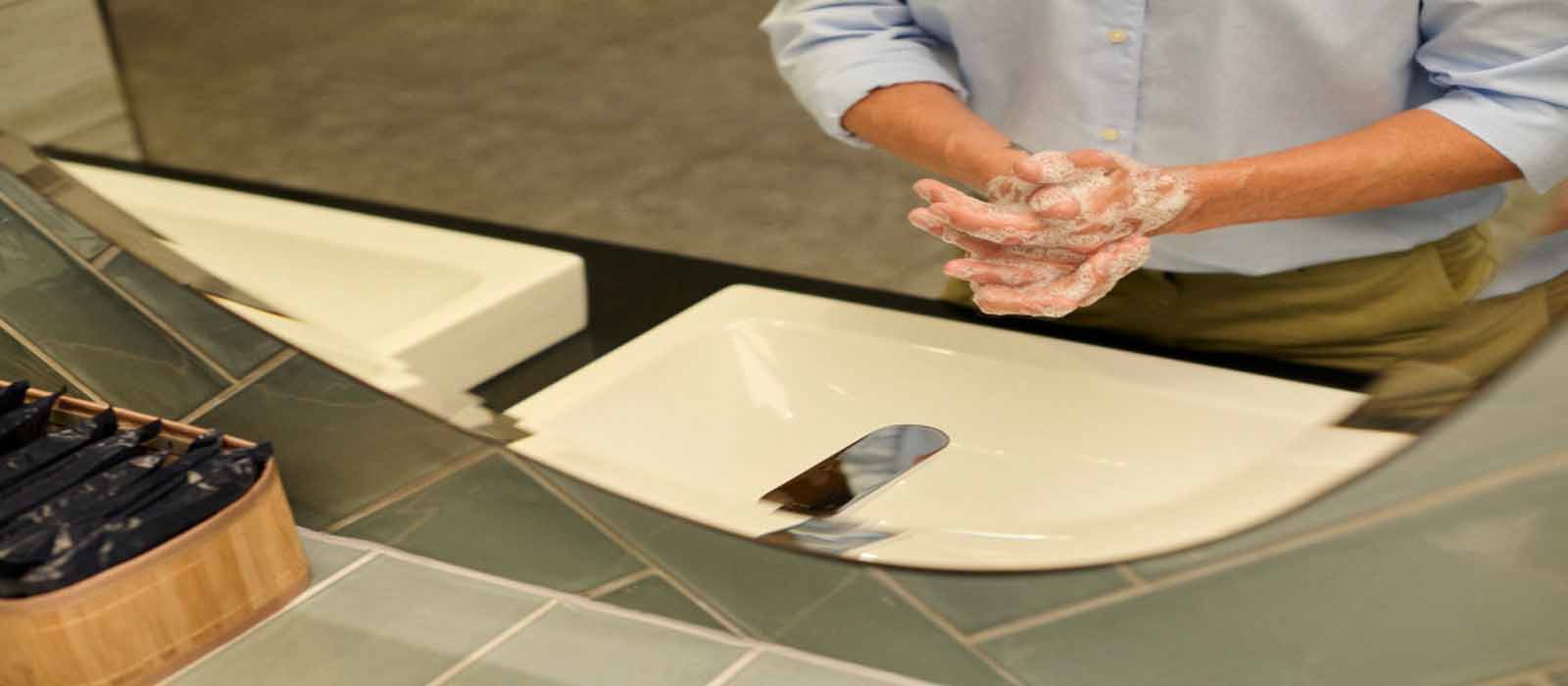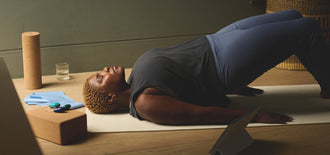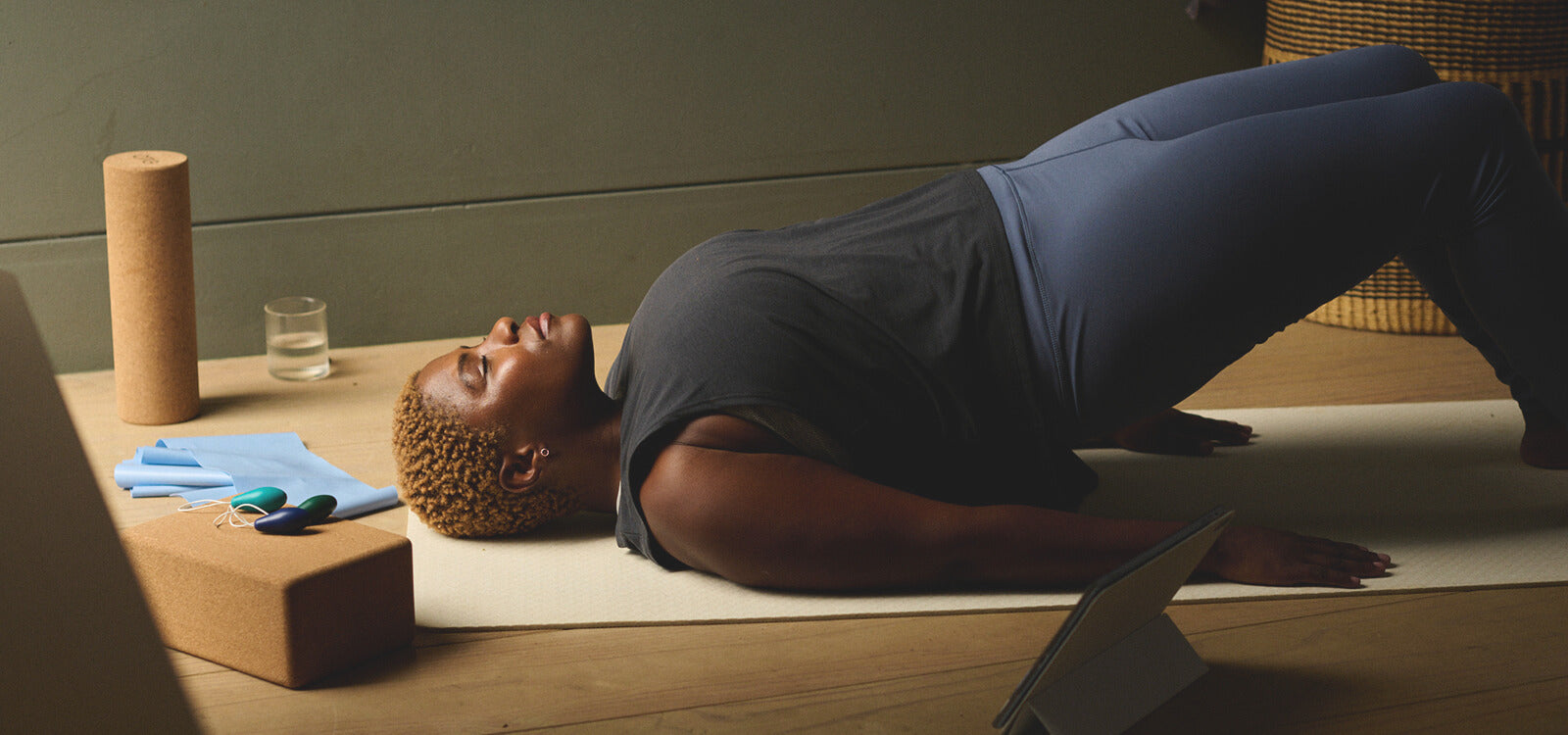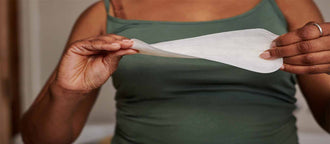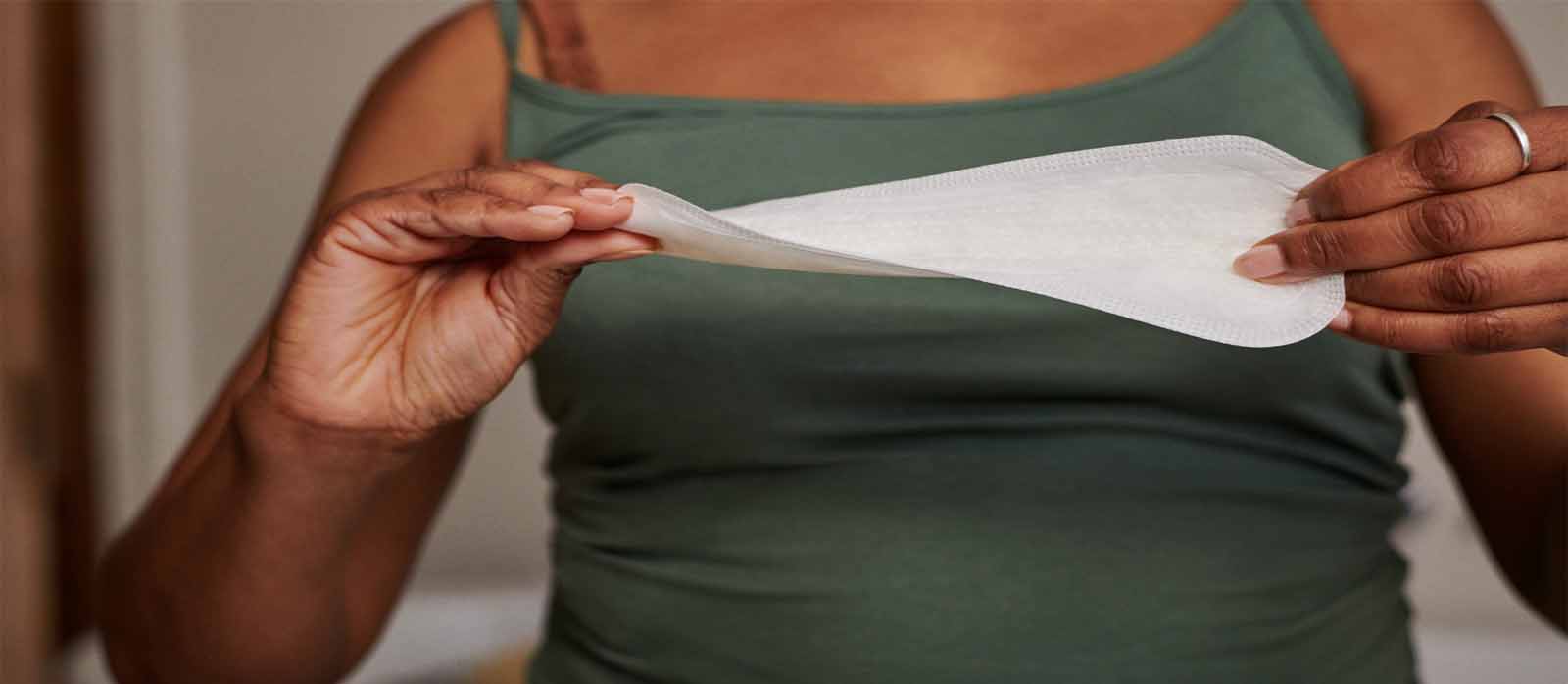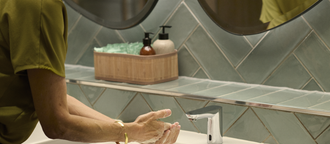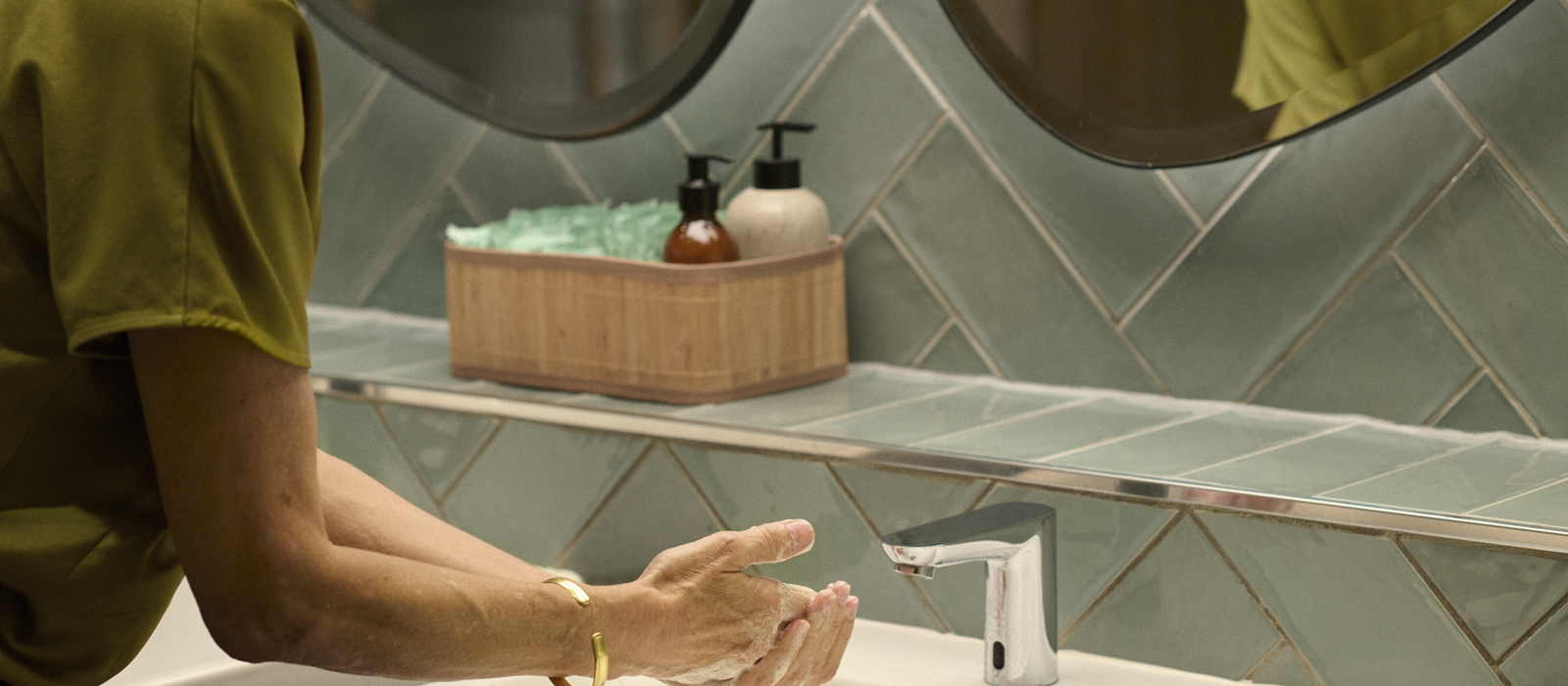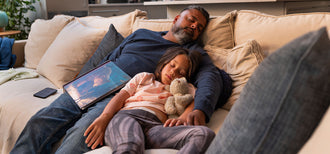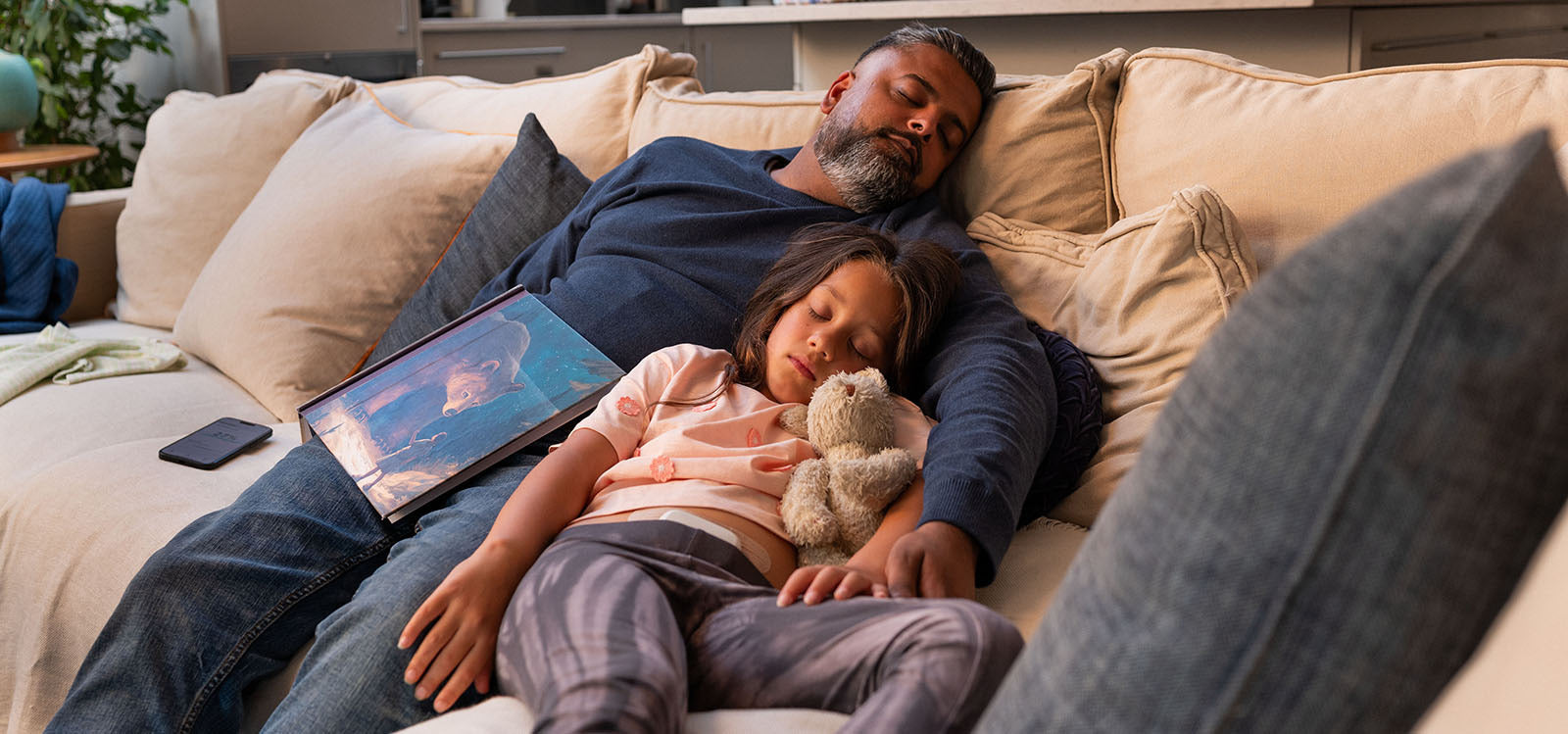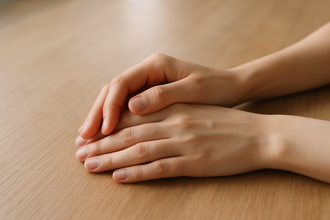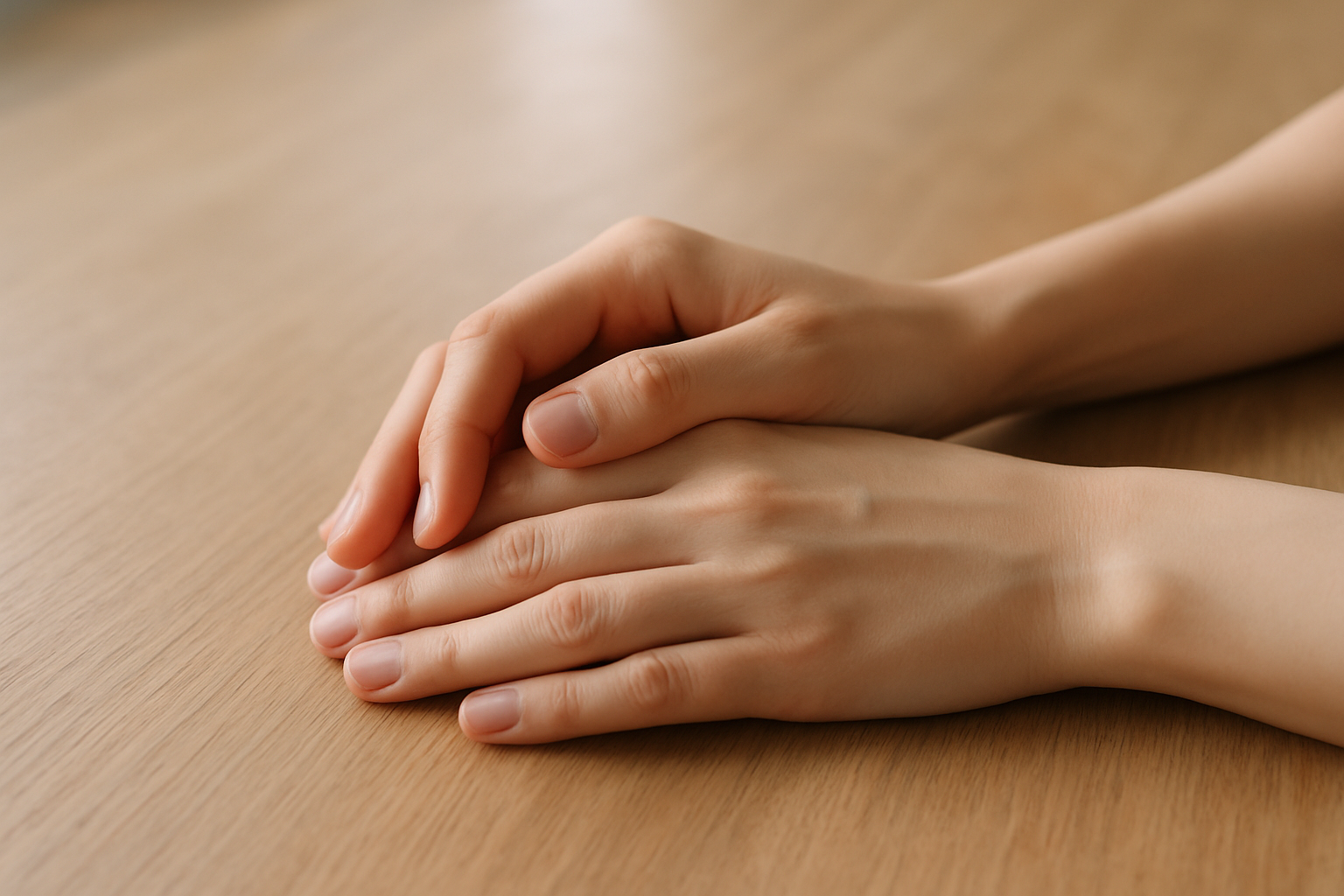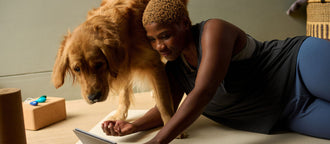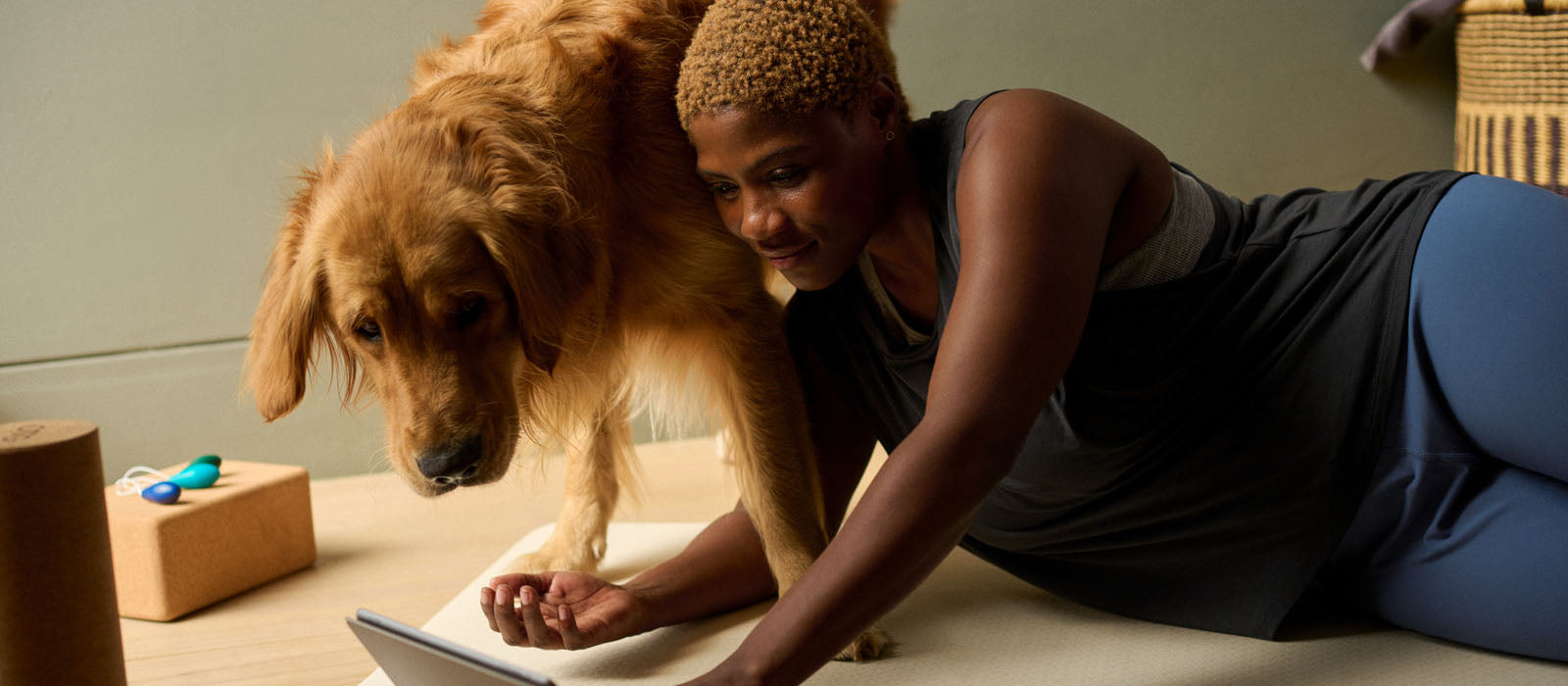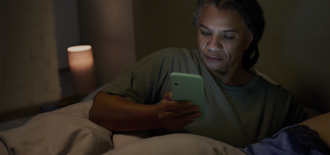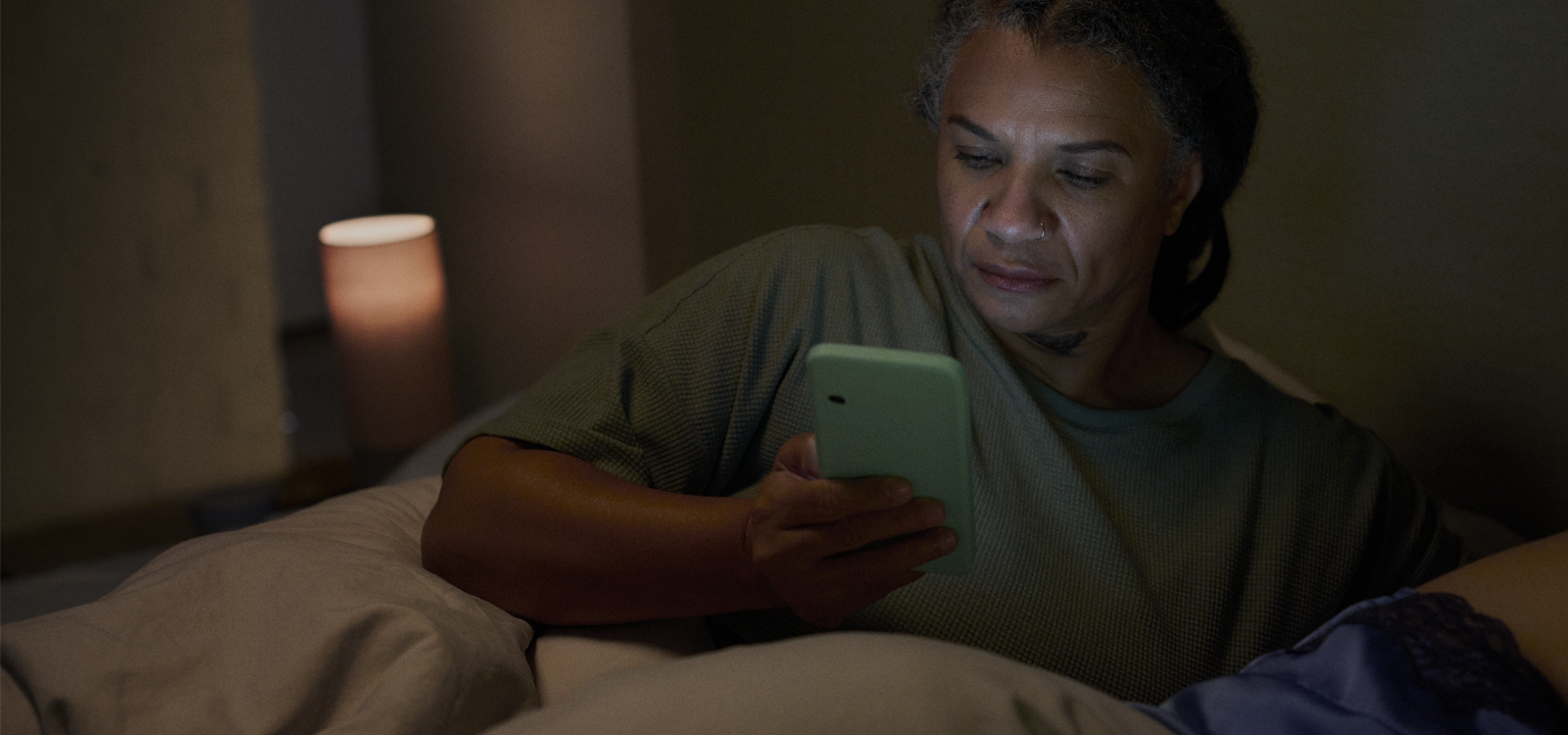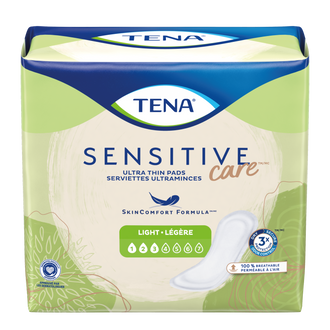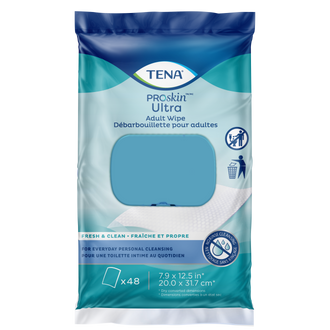Sep 22, 2025
The psychological effects of incontinence are real. Incontinence can quietly reshape your day, turning simple routines into moments filled with uncertainty or frustration.
The good news is, you're not alone; 25 million Americans live with incontinence.1 Even better news? You’re absolutely capable of taking control of your incontinence and reclaiming your confidence.
Let's explore the emotional impact of bladder problems and what you could do to regain control of your mental health.
The Emotional Weight of Incontinence
Living with the Fear of Embarrassment
Incontinence isn't something you can easily hide. Visible leaks or unwanted odors can trigger constant anxiety and make you feel like you must stay on high alert.
Your day revolves around restroom access; you check your clothes, plan bathroom breaks, or turn down plans just to avoid a possible accident. At work, you might pause mid-task to rush to the restroom. On a bus or in a meeting, you may sit quietly, distracted by worries no one else can see.
Over time, this constant checking and worrying could wear you down. It starts to feel like your day no longer belongs to you, but to incontinence.
Explore urgency incontinence - what it is, and triggers to help you better understand the condition.
The Hidden Shame and Stigma
Many people grow up hearing that incontinence only affects the old, sick, or frail.2 That kind of messaging could be hard to shake and may leave you feeling embarrassed or even ashamed if you’re living with it.
When you hold on to those beliefs, it could feel harder to talk about what you’re going through. You might avoid telling friends, or even put off talking to a doctor, because of the fear of judgment.
It's important to remind yourself this is far from the truth. Incontinence can affect anyone, at any age.2 It’s simply a health condition, not a reflection of you as a person.
The Silence Surrounding the Condition
If the stigma has made you keep quiet around loved ones, or even your doctor, you’re not alone. Yet, silence can increase feelings of isolation and frustration.
Breaking the silence with the right person not only helps you feel heard, but it also gives you the care and support you deserve.
Self-Esteem and Body Image
Feeling 'Less Than' or Broken
Leaks could make you feel out of control of your own body. You might compare yourself to others, wondering, "Why can't I be like everyone else?"
It's hard to feel in control, especially when leaks happen in public or when you need someone's help to clean up. Just know that you're not broken or any less of a person than anyone else in this world because you have incontinence.
Loss of Confidence in Daily Life
Living with incontinence could slowly chip away at your confidence. You might start losing faith in your ability to do simple things, like grocery shopping, exercising, or even laughing freely.
It makes total sense. You're just trying to avoid leaks, odor, or feeling self-conscious when you’re out in public.
Impact on Personal and Professional Identity
Incontinence could affect how you see yourself, as a professional, a parent, a partner, or someone who enjoys being active.
You might avoid work trips or events because you're anxious about managing symptoms in public. Intimacy may feel harder, not because you don't want a connection, but because you're worried about leaks or discomfort.
If you need help from your children, it can feel like the roles have flipped, which is hard when you're used to being the one who takes care of others. It is also easy to pull back from the parts of life that once brought you joy.
Social and Lifestyle Impacts
Avoiding Social Activities and Events
The fear of leaks, stains, or odors could make it feel safer to cancel plans than risk being in the spotlight.
Even something joyful, like a wedding, can turn into a stressful day. You might spend hours second-guessing your outfit, worrying about access to bathrooms, or wondering whether you’ll make it through without an accident.
Strained Relationships and Intimacy Issues
Bladder leaks can make you feel less attractive or confident in your body. You might start avoiding intimacy or even shy away from hugs or human touch altogether.
You want to share how you're feeling with your partner, family, or close friends, but you're unsure if they'll fully understand. It may feel like sharing too much, but you should know what you can and should have open discussions with them and let them into your circle.
You can still be intimate even when experiencing bladder issues. We’ve got tips and advice about bladder weakness and intimacy.
Feeling Isolated or Left Out
Those canceled plans and skipped hobbies are not your fault. You're doing what feels safe. Yet, after a while, even everyday conversations can start to feel hard. They remind you of everything you've been missing.
Before you know it, you're spending more time alone than you want to, and the loneliness creeps in. As loneliness grows, it could turn into take a more serious direction, like depression.3
Mental Health Challenges
Anxiety and Constant Worry about Leaks
Incontinence could cause anxiety, especially when leaks feel unpredictable, like with urge incontinence.4,5 Anxiety might start with simply wondering when and where the next leaks will happen.5 Yet, it can grow to panic when you're outside or far away from a nearby restroom.5
Depression and Emotional Withdrawal
We’ve mentioned that living with incontinence could lead to feelings of depression.5 You might notice yourself feeling sad, irritable, or hopeless more often than not.6
Things you used to enjoy, like your favorite shows or chats with friends, may no longer feel the same.6 Even small tasks can start to feel like too much.6
The Toll of Losing Independence
Managing incontinence on your own might feel like one of the few things you can still control. If that changes, losing control, or even just the thought of losing it, can be hard.
That’s especially true if you’re older or were once active and independent.
Coping Strategies and Support
Talking Openly with a Healthcare Professional
Asking for help doesn’t mean you’re weak or giving in to incontinence. It means you’re choosing to take back control.
Here are a few tips to help you prepare for the conversation:
- Bring a list of your concerns and questions.
- Choose a day when you feel calm and unhurried.
- Track when and how your leaks happen.
- Remind yourself why this step matters to you.
Joining Support Groups or Online Communities
A community filled with people going through similar situations can be like ice cream on a sunny day. It’s refreshing to talk to people who leave you feeling heard and connected. You might even pick up tips or encouragement that make daily life a little easier.
Here are some respectful, safe spaces to get you started:
Practicing Self-Compassion and Reframing Self-Talk
Be kind to yourself and your body. One helpful tip is to talk to yourself like a friend going through the same thing. For instance, instead of "Why can't my body just behave?" You could try "It's okay, leaks happen, let's clean up and move on."
Shifting to a positive attitude or reframing to positive self-talk may feel hard, but with practice, it gets easier.
Practical Steps to Regain Control and Confidence
Managing Symptoms with the Right Products and Routines
Planning your day with the right incontinence products and daily routine can turn managing incontinence into a form of self-care. They help you move through your day with more confidence, less stress, and the feeling that you're in control of your situation.
If you’re on the hunt for products that absorb leaks efficiently and discreetly, and care for your skin, look no further than our women's incontinence pads and men's incontinence guards.
Bladder Training and Pelvic Floor Exercises
Pelvic floor exercises and bladder training could reduce leaks and help you feel more in control.1
Pelvic floor exercises like Kegels strengthen the muscles that support your bladder.1 Bladder training, on the other hand, helps your bladder get used to holding pee for longer periods.1
If you're considering trying these, it's a good idea to talk to your doctor. They can guide you and make sure you're doing them correctly.
Ready to get started? Learn more about Pelvic Floor Exercises for Women.
Creating an Action Plan for Outings and Travel
Planning helps you feel calmer and more confident, because you know you're in control of your situation. Here are some simple tips to help you feel prepared for your next outing or trip:
- Use the right product for your incontinence needs.
- Pack an incontinence kit in a discreet bag.
- Use apps to find nearby restrooms when you’re planning an outing or trip.
- Know your triggers and try to avoid them.
- Wear dark clothing if it helps you feel more at ease.
- Sit near the bathroom if possible.
- If you're unsure where the bathroom is, ask politely when you arrive.
- Create a simple bathroom schedule that works for you.
Planning a trip? We’ve got tips and advice on how to travel with incontinence as well as what you need in your incontinence kit.
You Are Not Alone
Incontinence is Common and Treatable
When that feeling of loneliness starts creeping in, remember that you’re not alone, and 25 million Americans live with incontinence every day.1
It’s a common condition, and with the right support, incontinence is often treatable and manageable.1
Rebuilding Confidence is Possible with Support
It's okay to feel depressed, anxious, or even have low self-esteem. What matters is that you remember you can take control of your mental health and rebuild your confidence.
The first step is to reach out for support, whether from your family, friends, or even a mental health professional.
References
1. Sandra Gordon. Tips to Manage Incontinence [Internet]. WebMD. 2024. Available from: https://www.webmd.com/urinary-incontinence-oab/everything-managing-incontinence
2. Southall K, Tuazon JR, Djokhdem AH, van den Heuvel EA, Wittich W, Jutai JW. Assessing the stigma content of urinary incontinence intervention outcome measures. Journal of Rehabilitation and Assistive Technologies Engineering. 2017 Jan;4.
3. Novotney A. The Risks of Social Isolation. American Psychological Association [Internet]. 2019; Available from: https://www.apa.org/monitor/2019/05/ce-corner-isolation
4. Urinary incontinence: Common and manageable - Harvard Health [Internet]. Harvard Health. 2017 [cited 2025 Jul 12]. Available from: https://www.health.harvard.edu/blog/urinary-incontinence-common-and-manageable-2017101812583
5. Lee H, Rhee Y, Choi KS. Urinary incontinence and the association with depression, stress, and self-esteem in older Korean Women. Scientific Reports. 2021 Apr 27;11(1).
6. World Health Organization. Depressive Disorder (depression) [Internet]. World Health Organization. 2023. Available from: https://www.who.int/news-room/fact-sheets/detail/depression
